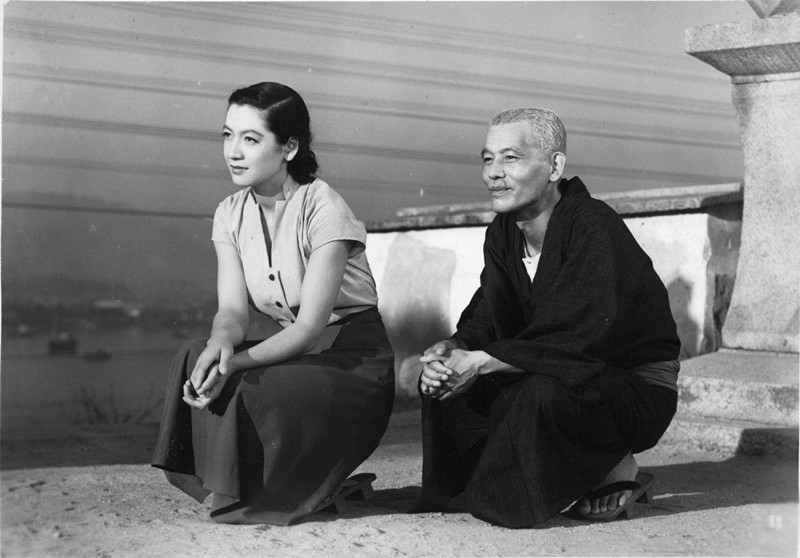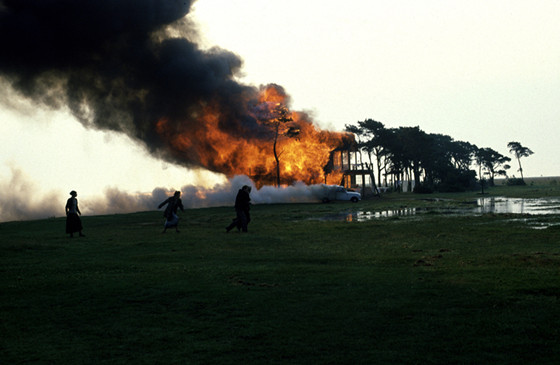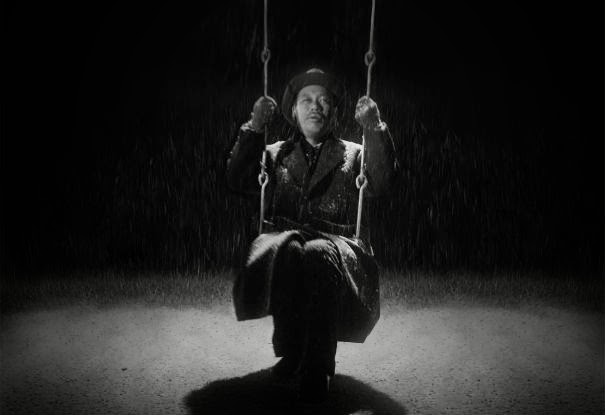5. Tokyo Story (1953) – Yasujirō Ozu

What it says about life: Life is a battle of conflicting selfish motives.
One does not have to live long before realizing that the majority of people are living to pursue their individual priorities and goals. Most conflicts arise when one person’s intentions run afoul of another’s and both are mutually exclusive.
The drive to achieve one’s own desires not only produces the potential for strife, but also prevents many close relationships with others. If another person is harboring schemes which may clash with one’s own, a certain distance must naturally be kept. But true intimacy requires a level of trust and openness which must be consciously developed.
In Tokyo Story, the intersecting personal priorities of one family are examined in heartbreaking detail by the great director Ozu. When the aging parents of a successful doctor come to town for a visit, individual agendas soon start to compete. The elderly folks want quality time with their children and grandchildren, but find themselves cast aside as an inconvenience.
The doctor’s career is his main priority, and quality time with his parents quickly becomes a hindrance to everyday life. The isolation of the family members on display at a time when they should be closest to each other is both revealing and tragic. This meditative, melancholy film is a realistic character study still deserving of a thoughtful viewer’s time.
4. The Rules of the Game (1939) – Jean Renoir

What it says about life: Human nature is not accurately represented by societal behavior.
In many ways, society is hypocrisy. Though the hypocrisy may be well intentioned and instituted for the common good, it nevertheless remains a polite facade. Just as criminal laws are formed to curb the worst human impulses, so societal customs arise to mask the elements of human behavior which are deemed inappropriate for public display. One need not take a fatalistic view of human nature as a whole to realize that discerning the difference between societal and private behavior is important to living intelligently.
The Rules of the Game is a savage social satire that lays bare the secrets slithering just under the surface of a polite upper class society. When an aristocrat hosts a hunting party at which the servants and their employers will interact, a host of concealed passions explode in violent fashion.
Overlapping adulterous affairs come to light, masked hatred is exposed, and murderous anger becomes the order of the day. This dark comedy never ceases for a moment to ring true to real life, as the rules of the game are broken and hypocrisy is for at least a night revealed as the true reality.
3. Wild Strawberries (1957) – Ingmar Bergman

What it says about life: Life tends toward isolation, and relationship must be cultivated.
When one possesses the youth and energy to live independently, the temptation to selfishness is strong. It is often when humans are at their weakest or lowest points that they are forced to assess their relationships with those for whom they have had little need.
Moments when we must depend on others for our strength often reveal the nature and the quality of our behavior toward them in the past. During the times when life makes it easy to choose isolation, one must actively pursue relationship or be prepared to face the future consequences.
The aging protagonist of Wild Strawberries is confronted with the consequences of his selfish actions at the very moment when his life is most celebrated by the public. After a lifetime of successful work as a doctor, he is on his way to receive an honorary degree from his alma mater. But the journey he takes to receive his recognition becomes in every way more important than the destination.
Through a series of dreams and interactions with some young hitchhikers, the doctor recalls many important scenes in his life which he had long buried. Though some memories are happy, most are melancholy, and he is forced to reckon with the consequences of his choices on both himself and his family. Wild Strawberries is a touching look at one man’s assessment of his own life, and it encourages its audience to live with the same awareness.
2. The Sacrifice (1986) – Andrei Tarkovsky

What it says about life: Life transcends the individual.
Even though the nature of existence makes one’s own life the most immediate and vital concern, larger forces are always at work. Realizing that any individual is merely a single note in a song that will continue to play long after one’s death is an important step toward maturity.
Understanding one’s proportional importance drives many to work for a cause which will outlast themselves, and in some cases the impact is great enough to inspire even the sacrifice of one’s life for that cause. How humans choose to use their lives, which are the drops of water within an overwhelming ocean of existence, reveals their perspective.
Shortly before his death, Tarkovsky gave us his perspective on these grand issues of life in his final film, The Sacrifice. Alexander, the main character, plants a tree on his birthday, as if to symbolize his hopes and dreams for a happy future in which he will see it grow. But when rumors of an imminent nuclear holocaust reach his ears, doubt and despair set in.
Though not a man of faith, Alexander makes a promise to God to sacrifice all that he loves, including his own son, if the global tragedy might be prevented as a result. The extent to which this one man will go to prevent mass destruction puts into perspective our daily choices and priorities.
1. Ikiru (1952) – Akira Kurosawa

What it says about life: Life is brief.
When one is young, life can feel like a whirlwind in which one is swept up without a spare moment to consider its nature. The greed for experience inherent within the will to live is a powerful driving force which propels humans blindly toward old age.
Though the realization that existence is in fact brief and transitory often dawns at the sunset of life, its truth may be felt at any age. But the impact of this fact is likely to radically alter one’s consciousness when it is fully grasped, and decisions will be affected. In what ways a life changes when faced with its own mortality depends on the individual.
“I can’t afford to hate people; I haven’t got that kind of time.” This is the attitude that the protagonist of Ikiru adops when he learns that he has only a few months left to live. After many years of mental and spiritual stagnation in his dreary office job, the sick man realizes that he has not truly lived for most of his life.
Determined to make a difference, no matter how small, in the world before he dies, he undertakes a community project with the gusto of a man with nothing to lose. The film’s study of his passionate final days, and of their influence after his death, presents an inspiration for the audience to embrace this brief life in a similar way.